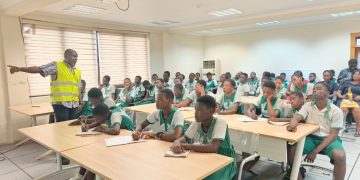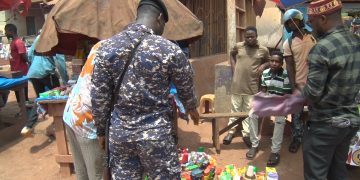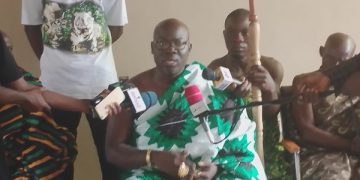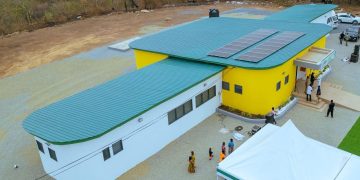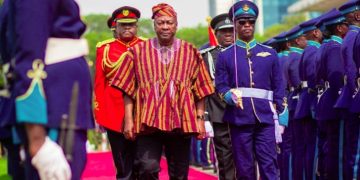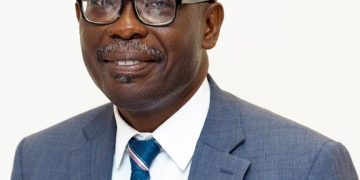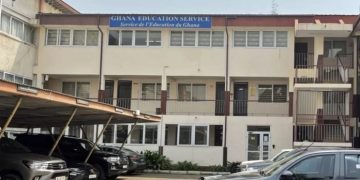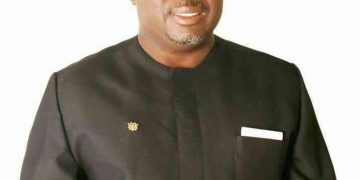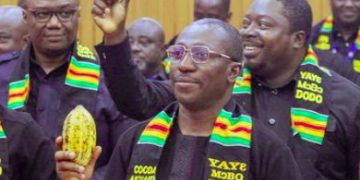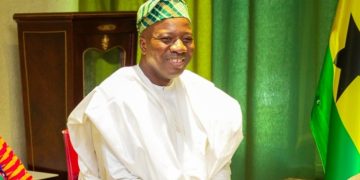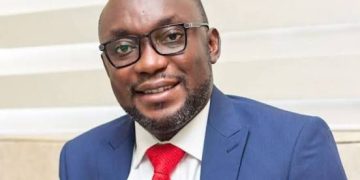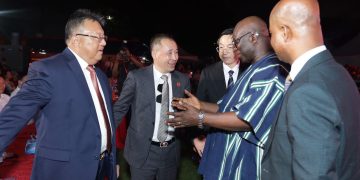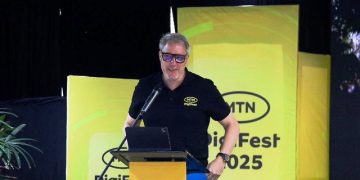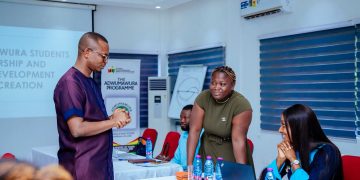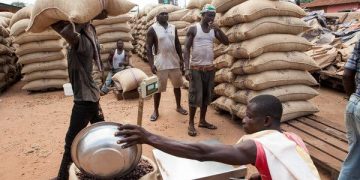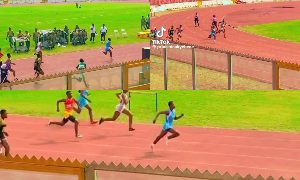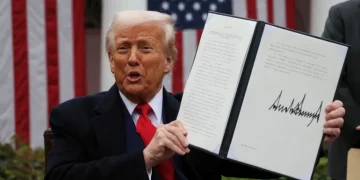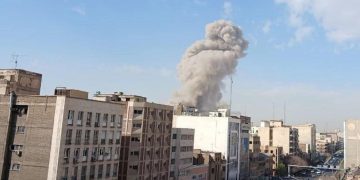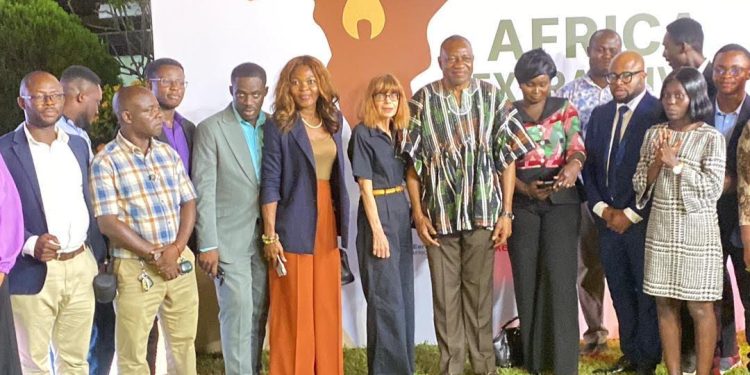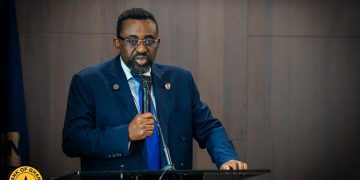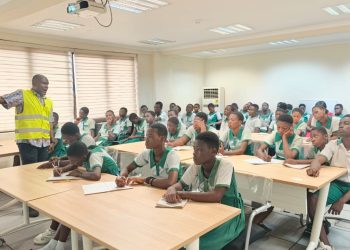Thirty journalists from Ghana have been selected to participate in the inaugural Africa Extractive Media Fellowship (AEMF).
This initiative aims to enhance journalists’ ability to produce accurate, data-driven, and impactful reports on Africa’s extractive industries.
The six-month fellowship, launched in Accra, brings together participants from various media outlets across the country to improve their understanding of issues related to mining, oil, gas, and natural resource governance. Supported by regional and international partners, the initiative seeks to bridge the gap between the technical complexities of the extractive sector and public understanding through credible journalism.
Promoting Responsible and Data-Driven Journalism
At the launch of the event, Berenice Owen-Jones, the Australian High Commissioner to Ghana, described the fellowship as an important step toward better public conversation and policy in the extractive sector. She said good journalism is crucial for holding industries accountable and promoting sustainability, which in turn affects Africa’s economic growth.
“The fellowship gives journalists the tools, exposure, and mentorship to tell meaningful stories about the extractive sector,” Owen-Jones said. “It also helps them analyze important issues like environmental impact, resource management, technological innovation, and how mining contributes to economic growth and job creation.”
Nana Oye Bampoe Addo, the Deputy Chief of Staff at the President’s Office, spoke about illegal mining, stressing that responsible mining practices are essential for Ghana’s long-term development. She pointed out that Africa loses approximately $40 billion annually from the extractive sector due to illicit financial flows, making thorough and data-driven reporting even more necessary.
“This sector loses over $40 billion every year due to illegal financial outflows, according to the Economic Commission for Africa. This loss undermines public investment in education, health, climate adaptation, and youth jobs. These issues show the need for vigilant, well-prepared journalism and stronger reforms across Africa. This reinforces the importance of the fellowship we are launching today,” Madam Bampoe Addo said.
Government Commitment to Value Addition
The Chief Executive Officer of the Minerals Commission, Isaac Andrew Tandoh, reaffirmed the government’s dedication to enhancing the value of Ghana’s mineral resources through local refining and processing. This strategic approach is expected not only to generate employment opportunities but also to increase government revenues and foster sustainable development.
Mr. Tandoh underscored that adding value to mineral resources is a national priority, pointing to initiatives such as the Ghana Integrated Aluminium Development Corporation (GIADEC), which is at the forefront of efforts to maximize the potential of the country’s bauxite reserves.
Partnerships and Transparency in the Extractive Sector
Emman Morrison, Vice Chair of the Public Relations Committee of the Ghana Chamber of Mines, highlighted the importance of a well-informed media in promoting transparency and building public trust in the extractive sector.
“Transparency cannot thrive in isolation,” he said. “It depends on a strong, informed, and responsible media — one that can turn technical data into stories the public can understand and trust.”
Mrs. Morrison explained that the Chamber’s collaboration with the AEMF aligns with its mission to promote responsible mining and open governance. She said the Chamber’s ongoing engagement with journalists goes beyond public relations; it aims to create better understanding and accountability between industry players and the public. “Through financial reporting and training partnerships, we are building an environment of openness and trust,” she said. “Our goal is to create a transparent mining industry that helps Ghana grow.”
Media Training and Knowledge Acquisition
Onasis Rosely, Deputy Chief Executive Officer of the Petroleum Hub Development Corporation (PHDC), praised the fellowship as an important step toward improving local media skills in the extractive industry.
He said, “The extractive industry involves complex areas like economics, geology, and environmental issues. Continuous training and mentorship are necessary so journalists can report accurately and confidently.”
Mr. Rosely noted that Ghana’s media often lacks specialized training in key sectors such as oil, gas, and mining, leading to an overreliance on foreign sources. He believes initiatives like the AEMF are vital for helping local journalists tell Ghana’s stories about its natural resources.
He also announced that PHDC will support the fellowship by sharing technical expertise and providing access to experts within Ghana’s emerging petrochemical hub, which is expected to attract around $60 billion in investment.
Building an “Army of Extractive Reporters”
Kwakye Afreh-Nuamah, Programme Lead of the Africa Extractive Media Fellowship, provided an overview of the six-month program, which will be conducted in person with participants meeting for two days each month. The fellowship offers practical training, mentorship, and access to industry data to strengthen journalists’ ability to report effectively on extractive governance.
“The primary objective of this training is to empower journalists to convey complex extractive issues to the public in a clear and relatable manner,” he stated. “We aspire that at the conclusion of the fellowship, these 30 journalists will form a distinguished group of extractive reporters, elevating the standard of resource-related journalism in Ghana and across the African continent.”
Fellows Share Their Expectations
The selected participants include Noah Nash Hoenyefia, Northern Regional Correspondent for EIB Network; Clankson Acheampong, Broadcast Journalist with Asaase Radio; and Frederick Addai Kwarteng, Reporter for High Street Journal. Each participant expressed enthusiasm for the opportunity, recognizing it as a chance to enhance their capabilities in investigative and data-driven reporting.
Mr. Noah Nash conveyed his eagerness to acquire the knowledge and skills necessary for producing compelling narratives on mining across the five regions of Northern Ghana. “I am excited to be part of this initiative,” he remarked. “This fellowship presents a valuable opportunity to improve our coverage of the extractive industry and to share stories that inform the public and encourage accountability in the Northern regions.”
Strengthening Accountability Across Africa
The Africa Extractive Media Fellowship is dedicated to improving governance, transparency, and sustainability in resource management throughout the continent. Organizers believe that equipping journalists with the skills to report accurately on extractive issues will play a crucial role in mitigating corruption, reducing illicit financial flows, and combating environmental degradation.
By providing journalists with advanced data-analysis tools, comprehensive mentorship, and practical field experience, the fellowship aims to elevate extractive reporting into a specialized discipline that influences policy and fosters responsible stewardship of Africa’s natural resources. As the inaugural cohort embarks on its training, organizers express confidence that this initiative will establish a new benchmark for journalism in the sector, one that is grounded in accuracy, accountability, and a commitment to public service.
Source: www.KumasiMail.Com/Hoenyefia Noah Nash


